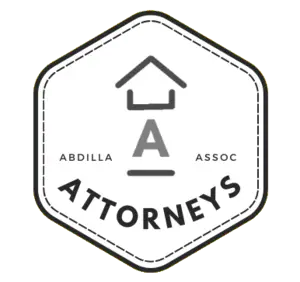If you’re looking to sell residential real property in Illinois, it’s important to understand the Illinois real estate disclosure laws. Whether you’re selling a single-family home, a condo, or a four-unit multifamily property, you must file a disclosure form as defined by law. Even if you’re selling the property as-is. In fact, the Illinois Association of Realtors has created a Multiboard 7.0 Contract to help real estate agents navigate the legal requirements and avoid lawsuits. Real Estate Advertising Law is, largely, about using the right real estate disclosure form and being honest. It’s this same form, whether you’re on for sale by owner disclosures or you use a real estate agent. Below, you will find a copy of the 2022 Illinois Disclosure Form update to the Illinois Residential Real Property Disclosure Report to help follow along.
Table of Contents
When Should I File a Real Estate Disclosure?
ILLINOIS-RESIDENTIAL-REAL-PROPERTY-DISCLOSURE-REPORT-IRELA-fillable-New-2022-FINALIn Illinois, only the seller of residential real property needs to disclose. This means only residential real estate with a single-family residence, or up to four-unit multifamily homes must fill out that 2022 form. Whether you’re making a commercial deal, a condo, an investment deal or selling with the usual Multiboard 7.0 Contract, you must disclose.
Get the Answers to Your Real Estate Disclosures
$0 Attorneys Fees When We Handle Your Real Estate Disclosures
Firstly, this means the person disclosing is a Seller as defined by law. So, this means that they are either the owner, the beneficiary of a trust, a corporate representative, or a wholesaler. That means, if someone was never occupying and never managing that property, they will not need to file real estate disclosures. Also, you will need to fill out that 2022 Illinois Disclosure Form whenever you sell, exchange, or lease to purchase a property. Even if you’re making for sale by owner disclosures. So, if ownership might change hands, under Illinois real estate disclosure laws you should disclose everything again!
Did the Illinois Disclosure Form change in 2022 or 2023?
Real estate brokers in Illinois should be aware of the latest updates to the state’s disclosure requirements. Illinois just updated this real estate disclosure form in May 2022 under House Bill 4322. These Illinois Real Estate Disclosure Laws updates include a new 24th disclosure, which asks whether the property is insured against flooding. The other change is that the seller must affirmatively state whether or not they lived in the home, and the status of the home as non-owner-occupied no longer forgives a failure to answer.
The 2022 Illinois Residential Real Property Disclosure update:
- First, Disclosures must be made before the contract is signed. If the disclosures are made after the contract is signed, the buyer has five days to cancel the contract. It’s just like the rules for Attorney Review.
- The disclosure form can now be sent via email or other electronic delivery. This is great if you’re selling a home without a realtor.
- Sellers must supplement their disclosure if they discover errors, omissions, or inaccuracies in the report.
- Buyers can cancel contracts based on a supplemental disclosure under three scenarios:
- The seller knew about the problem but did not disclose it in the original report.
- The problem cannot be repaired before closing.
- The problem can be repaired, but the seller won’t do it.
- Not all sellers need to make these disclosures. Disclosures are not required if:
- The seller is a relocation company, like when someone is frequently moved around the country for new jobs.
- The property is brand new construction. However, rehabbers and flippers must make disclosures even if they never lived one day in the property.
- The transfer is made under certain circumstances where it’s not really a sale, but just changing real estate title:
- Between spouses or others of direct lineage.
- By wills/probate/TODI (Transfer on Death Instrument).
- By or between co-owners.
- By a court order, including foreclosure.
No Changes to Who is Exempt under Illinois Real Estate Disclosures including For Sale by Owner Disclosures
It’s important to note that Illinois real estate disclosure laws did not change who must disclose. Exempt sellers are still exempt. But, if you fail to make the required disclosures, you can find yourselfin a fraud lawsuit from the buyer. For real estate brokers, make sure to stay up to date with the latest real estate disclosure requirements to avoid professional liability problems. However, for a real estate seller, especially if you’re doing for sale by owner disclosures, you need your team. So, make sure you talk to your attorney and teammates about how to be properly truthful to avoid legal trouble.

What Goes into a Real Estate Disclosure? What are For Sale by Owner Disclosures?
The real estate disclosure form I included for you above has 24 questions. But, on nearly every property I sell, no more than two of these are ever checked yes. Whether it’s for sale by owner disclosures or someone is using a real estate agent, or someone is selling as-is – it’s only 2. You might ask why? In general, the answer is that you only need to disclose what you personally know. I know most of my clients want to be helpful, but limit yourself to only what you know is true. Illinois real estate disclosure laws only apply when you have personal knowledge, of your own, that there is a problem.
Get the Answers to Your Real Estate Disclosures
$0 Attorneys Fees When We Handle Your Real Estate Disclosures
So, this is why Sellers answer most questions with “No.” on the real estate disclosure form! While the Seller might not know of these defects, many sellers suspect them. You should still hire a licensed inspector to look into any transaction you think about. By analogy, nobody would tell you what’s wrong with a used car — why would you trust them about a house!
Finally, when a Seller marks an issue as N/A, it means the component is not in the property. Commonly, we will see Number 4, Number 9, and Number 12 marked N/A. Generally, if you see a “N/A,” there is usually nothing to worry about.

What are the Rules for Condominiums, Townhouses and HOA?
If you own a condominium and are looking to sell, you must fill out a residential real property disclosure form in Illinois. As a condo owner, you must answer the same 24 questions on the form as any other residential property owner, including questions related to the condition of the property, its appliances, and any previous damage or repairs. However, there are some unique factors that you should be aware of when filling out the form for a condo sale.
One key factor is the homeowner’s association (HOA) or condominium association. As a condo owner, you are part of this association, and the HOA or condo board is responsible for maintaining and repairing many parts of the building and common areas. When filling out the disclosure form, you must indicate whether there are any outstanding fees or assessments due to the association, as well as any special assessments that are pending. Even if you are making for sale by owner disclosures, this is a thing you are required to tell the buyer. Those usually go in Paragraph 9 in the Multiboard contract and not on the real estate disclosure form.
Condominium Common Area Disclosures
You must also disclose any known defects or issues with your individual unit or common areas that could affect the value or safety of the property. For example, if the elevator has been out of service for an extended period, or if the roof has a known leak, you must disclose these issues. This applies even if it is not part of your maintenance obligations as the owner. Sometimes, you do not make these statements when you’re doing for sale by owner disclosures because you simply don’t know.
Remember that the purpose of the disclosure form is to provide the buyer with a complete and accurate picture of the property’s condition. Be honest and transparent about any known issues, as failing to disclose a material defect can lead to legal trouble down the line. If you are unsure about whether to make a real estate disclosure on a particular issue, consult with your real estate agent or an attorney for guidance.
What Don’t I say on a Real Estate Disclosure? What Should I Say in For Sale by Owner Disclosures?
There are a few things you won’t need to discuss as a seller. You won’t need to discuss whether you’re in foreclosure, or forbearance, or even if you received any COVID19 relief. As I said earlier, you never need to disclose things that you think might be wrong with your house. You only need to disclose if you know something is wrong with the home. If you say “the roof is old,” or “the gas bill is creeping up from this old furnace,” that’s not something you know to be unsafe. You must disclose on the Illinois Disclosure Form things you know are unsafe or detrimental to value, not just things that make you unhappy.
Get the Answers to Your Real Estate Disclosures
$0 Attorneys Fees When We Handle Your Real Estate Disclosures
What is a Material Defect in Illinois Real Estate Disclosure Laws?
This certain phrase, “material defect,” appears over and over again in the disclosures. According to the International Association of Certified Home Inspectors (IACHI) a material defect is a specific issue with a system or component of residential property that may have a significant, adverse impact on the value of the property or poses an unreasonable risk to people.
So, this means a material defect is a big deal! Generally, a material defect is noticeable, like fraying wires or a broken railing. Other things that might be material defects are water stains, soggy carpet, broken windows, mold at the baseboards, and a strange smell. However, it is not simply a defect if a thing is old or obsolete. Specifically, you must disclose a material defect because it affects value or safety – not function. If you think of anything that might alter the value or safety of your property, you must answer that there is a material defect on the Illinois Residential Real Estate Disclosure Form.
In a case where a person has a duty to speak, their failure to disclose material information constitutes fraudulent concealment. In real estate, sellers have a duty to disclose any actual knowledge they may have regarding a material defect in the walls, windows, doors, or floors. This includes any condition that would have a substantial adverse effect on the value of the residential real property or that would significantly impair the health or safety of future occupants of the residential real property.
What if I don’t disclose? Common Law Fraud of Real Estate Disclosure Claims
You’ll be in a heap of legal trouble! Illinois law allows a buyer to sue a seller for fraud for the actual cost of repairs and all attorney’s fees and costs. Any attorney will take these cases because they know they have a blank check to spend on it. The following is the simplest way I can explain common law fraud cases for a failure to make good real estate disclosure.
In a common law fraud claim, a plaintiff must provide clear and convincing evidence that the defendant made a false statement of material fact, knew the statement was false or made the statement in reckless disregard of whether it was true or not, and made the statement with the intent of inducing the plaintiff to act. The plaintiff must also prove that they reasonably believed the statement, acted in justifiable reliance on the truth of the statement, and suffered damages as a result. The standard is not different if these are for sale by owner disclosures or not.
In Illinois, the standard of proof required in a common law fraud case is more than a preponderance of evidence but less than the degree of proof necessary to convict a person of a criminal offense. Courts consider clear and convincing evidence to be more than probably true while not quite approaching the degree of evidence beyond a reasonable doubt.
Even if you don’t know the law, the law treats you like you do. This means that sellers have a legal obligation to disclose any known material defects in their property. Failure to do so could lead to a common law fraud claim and legal trouble.
Conclusion
Some simple tips will keep you safe when you are selling your home. First, be honest with your Realtor about the faults with your home. After all, nothing is perfect. Second, make sure that you work with your team to explain your real estate disclosures to future buyers. Third, always utilize the attorney review process if you need to clarify something more or smooth over the sale. With this in mind, you’ll be a success in no time!
Get the Answers to Your Real Estate Disclosures
$0 Attorneys Fees When We Handle Your Real Estate Disclosures
Legal Sources Mentioned in this Article:
- Kroot v. Chan, 2017 Il App (1st) 162315.
- Parsons v. Winter, 142 Ill.App. 3d 354 (1986).
- Gordon v. Dolin, 105 Ill.App. 3d 319 (1982).
- Zimmerman v. Northfield Real Estate, Inc., 156 IlL App. 3d 154, 161 (1986).
- Salisbury v. Chapman Realty, 124 Ill.App.3d 1057 (1984).
- 765 ILCS 77/35
- 765 Ill. Comp. Stat. Ann. 77/35
